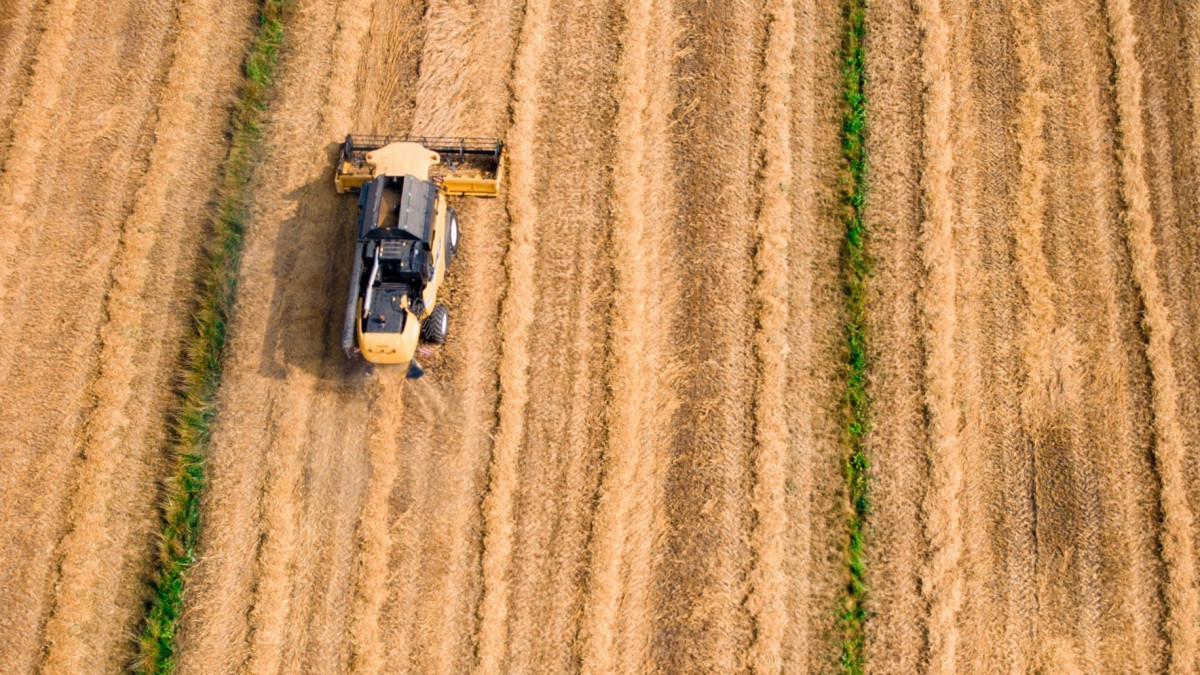Recent data from the United Nations suggest hunger and chronic undernourishment are increasing around the world. Simultaneously, global rates of obesity are skyrocketing, due in part to developing countries adopting a more “Western” diet. Meanwhile, the world’s population is expected to grow to nearly 10 billion people by 2050. Rees Clayton is a senior scientist with The Good Food Institute, a nonprofit that seeks to build a sustainable, healthy and just food system. We asked her:
How can we evolve the food system into one that will sustainably nourish the world’s growing population?
Solutions to our global food system crisis must be bold and transformative, implemented justly and efficiently, and focus on both public health and planetary health. In the study “Shifting Diets for a Sustainable Food Future,” the World Resources Institute estimates that, compared to 2006, we will need 70% more food to meet global demand in 2050. It is unlikely that improvements in agricultural productivity alone will close this gap, given yields would have to increase 33% faster than they did during the Green Revolution of the 1950s and ’60s.
It’s true that modern-day food production is vastly more efficient than in our great-grandparents’ time. However, our current food system already uses more than a third of Earth’s habitable land, displacing wild ecosystems. Deforestation for new crop and grazing lands is a leading contributor to climate change, as is feed-crop production itself. Additionally, feed-crop fertilizer and manure from industrial farms are significant sources of water pollution and rural air pollution.
There is immense opportunity to course correct. From a scientific and technical standpoint, we’ve never been better equipped to address complex global problems. Brilliant minds from around the world are already collaborating to identify potential solutions to today’s food issues. Researchers from disciplines as varied as plant biology, cell biology, protein chemistry, biomedical and chemical engineering, economics, ethics, sociology and food science all have invaluable expertise and perspectives to bring to the development of these solutions.
I am particularly excited about two emerging innovations in our global food system: plant-based meat and cell-based meat. Plant-based meat gets all its amino acids, fats and minerals from plants. Cell-based meat – sometimes called clean meat as a nod to clean energy in the energy sector – is made up of animal cells but grown from these cells directly rather than as part of an animal. One of the main motivations for producing both plant-based and cell-based meats is to develop a food system that functions more efficiently from economic and environmental standpoints.
We already spend many billions of dollars every year to create incremental improvements in the status quo. Imagine if instead these resources went toward advancing the bold and transformative solutions of plant-based and cell-based meat. There is an urgent need for exponentially more research, training, technical talent and funding from around the world to enter these fields. Academic institutions are positioned to play a vital role in fast-tracking both the research and workforce development necessary to accelerate the plant-based and cell-based meat industries. If successfully implemented on a global scale, a food system based on plant-based and cell-based meat has the potential to sustainably feed 10 billion people by 2050. These solutions would mitigate climate change and other pressing environmental problems and decrease global public health issues such as antibiotic resistance and zoonotic threats.
DePauw Magazine
Summer 2019
 Rising Above in Business and Tech
Rising Above in Business and Tech The Bo(u)lder Question By Erin Rees Clayton ’01
The Bo(u)lder Question By Erin Rees Clayton ’01 FIRST PERSON with Tim Holt ’88
FIRST PERSON with Tim Holt ’88 Alum Finds Clarity in 8,000-Mile, 154-Year Journey
Alum Finds Clarity in 8,000-Mile, 154-Year Journey From the Poignant to the Profane: Alum Preserves Soldiers’ Personal Stories
From the Poignant to the Profane: Alum Preserves Soldiers’ Personal Stories Entrepreneurship: Three Takes on It, Three Tracks to It
Entrepreneurship: Three Takes on It, Three Tracks to It PARALLEL PATHS: Best Friends Transform Career Crises into Triumphs
PARALLEL PATHS: Best Friends Transform Career Crises into Triumphs The Sweet Taste of Success
The Sweet Taste of Success
DePauw Stories
A GATHERING PLACE FOR STORYTELLING ABOUT DEPAUW UNIVERSITY
Browse other stories
-
Athletics
-
Women's Basketball - Tigers Travel to Carroll College for NCAA Opening Round
-
Baseball - Tigers Drop Final Game in Memphis
-
Women's Lacrosse - DePauw Drops Match to Rhodes College
More Athletics
-
-
News
-
Francesca Seaman Speaks the Language of Mentorship
-
DePauw Announces $10 Million Matching Challenge for Student Scholarships
-
DePauw University Remembers Esteemed President Emeritus Robert G. Bottoms
More News
-
-
People & Profiles
-
Empie, Party of Five: One Family’s Unique DePauw Bond
-
Entrepreneurs Eric Fruth ’02 and Matt DeLeon ’02 Are Running More Than a Business
-
Rick Provine Leaves Legacy of Leadership and Creativity
More People & Profiles
-
-
Have a story idea?
Whether we are writing about the intellectual challenge of our classrooms, a campus life that builds leadership, incredible faculty achievements or the seemingly endless stories of alumni success, we think DePauw has some fun stories to tell.
-
Communications & Marketing
101 E. Seminary St.
Greencastle, IN, 46135-0037
communicate@depauw.eduNews and Media
-
News media: For help with a story, contact:
Bob Weaver, Senior Director of Communications.
bobweaver@depauw.edu.